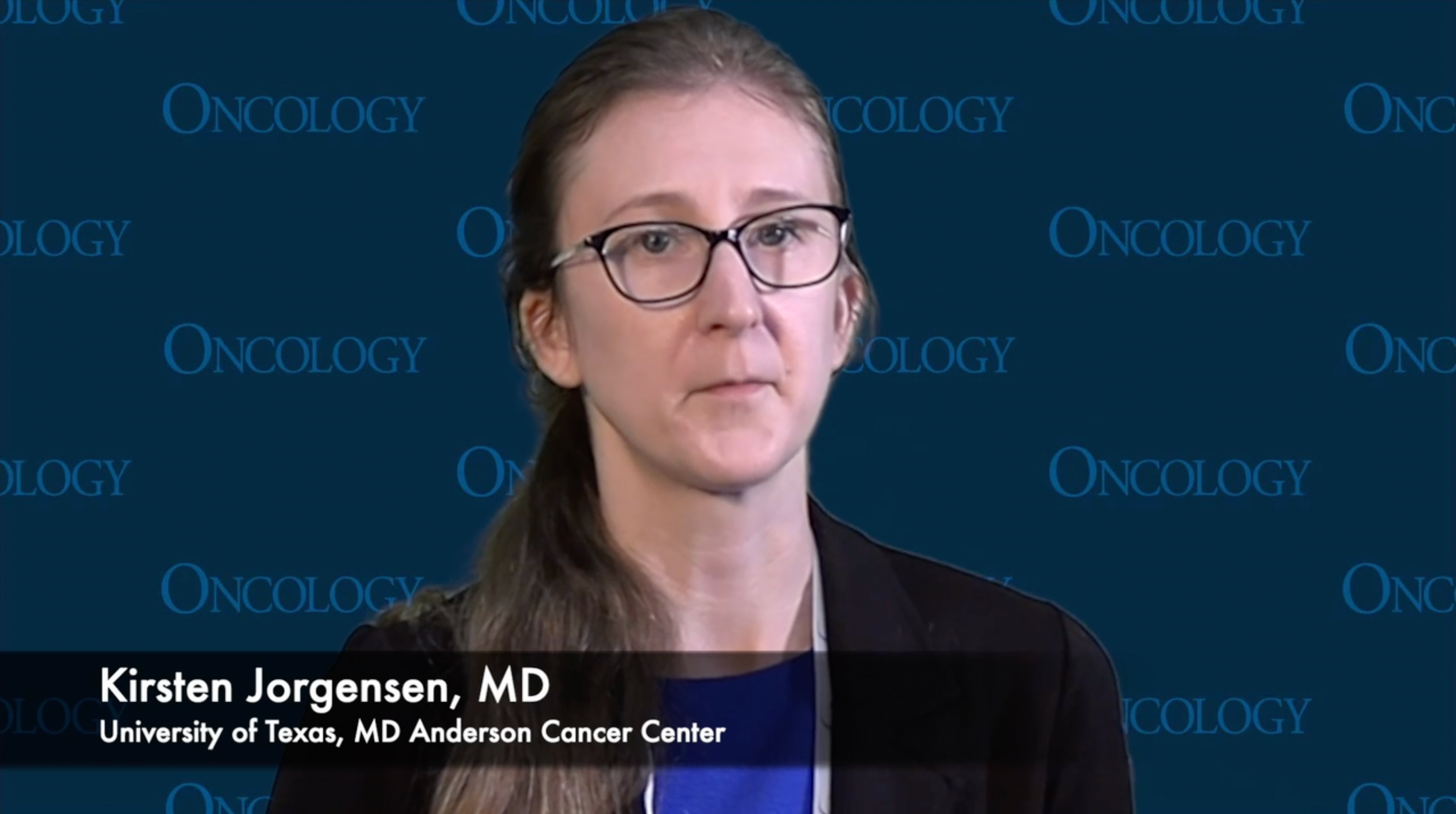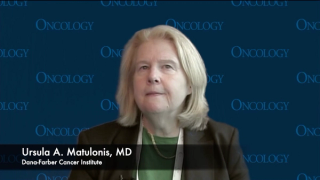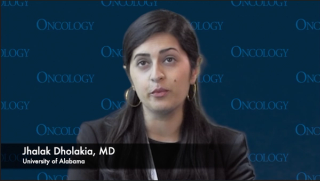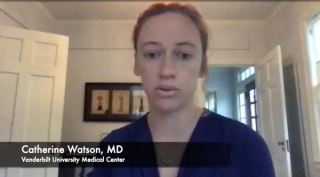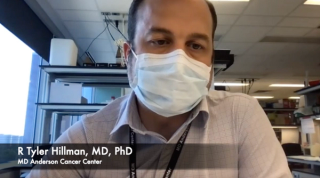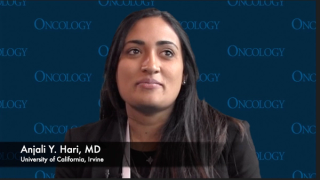
Ovarian Cancer
Latest News
Latest Videos

CME Content
More News

Niraparib Maintenance Demonstrates Favorable OS Trend in Platinum-Sensitive Recurrent Ovarian Cancer
Findings from the phase 3 NORA study identified a numerically longer median overall survival among patients with platinum-sensitive recurrent ovarian cancer treated with maintenance niraparib regardless of BRCA mutation status.

The first-in-class Heat Shock Factor 1 pathway inhibitor NXP800, the subject of an ongoing phase 1 dose-escalation study, has been granted a Fast Track designation for the treatment of platinum-resistant ovarian cancer by the FDA.

A longer, 30-month treatment duration with bevacizumab did not improve outcomes over the standard 15-month treatment duration in patients with newly diagnosed ovarian cancer.

Ursula A. Matulonis, MD, spoke about the next steps for mirvetuximab soravtansine in the treatment of patients with folate receptor α–high platinum-resistant ovarian cancer.

Ursula A. Matulonis, MD, discussued studies are being conducted assessing the use of mirvetuximab soravtansine in patients with folate receptor-α–positive platinum-resistant ovarian cancer.

Ursula A. Matulonis, MD, indicated that acknowledgement of external targets such as FR-α could lead to success with antibody-drug conjugates in platinum-resistant ovarian cancer.

The VENTANA FOLR1 RxDx Assay has received approval from the FDA for identifying epithelial ovarian cancer in patients who may be eligible for treatment with mirvetuximab soravtansine-gynx.

Ursula A. Matulonis, MD, spoke about the phase 3 SORAYA trial and how it helped lead to the approval of mirvetuximab soravtansine in folate receptor-α–positive platinum-resistant ovarian cancer.

The FDA has granted mirvetuximab soravtansine-gynx an accelerated approval for the treatment of patients with folate receptor-α-positive platinum-resistant ovarian cancer based on results from the phase 3 SORAYA study.

At 2022 IGCS, Ursula A. Matulonis, MD, spoke about the toxicity profile observed with mirvetuximab soravtansine monotherapy in patients with folate receptor α–high platinum-resistant ovarian cancer reported from the phase 3 SORAYA study.

Ursula A. Matulonis, MD, spoke about the updated results of the phase 3 SORAYA trial with mirvetuximab soravtansine in patients with folate receptor α–high platinum-resistant ovarian cancer presented at 2022 IGCS.

Ursula A. Matulonis, MD, spoke about the motivation behind the phase 3 SORAYA trial investigating mirvetuximab soravtansine in patients with folate receptor α–high platinum-resistant ovarian cancer.

Despite inconclusive efficacy results regarding the use of pembrolizumab plus epacadostat in patients with recurrent clear cell ovarian carcinoma, rapid accrual to the trial reveals an unmet need in this cancer subset.
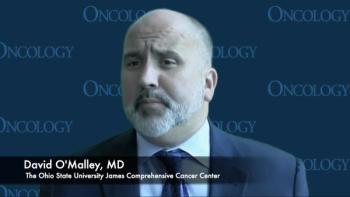
Data from the phase 3 ATHENA-MONO study indicated that maintenance rucaparib yielded progression-free survival benefit vs placebo across all subgroups in a population of patients newly diagnosed ovarian cancer, according to David O’Malley, MD.

Quality of Life Sustained With Maintenance Olaparib Rechallenge in Platinum-Sensitive Ovarian Cancer
Patient-reported outcome data from the phase 3b OReO/ENGOT-ov38 trial showed no significant effect on quality of life following rechallenge with maintenance olaparib in patients with platinum-sensitive relapsed ovarian cancer.

Results from the phase 3 ATHENA-MONO study suggest that rucaparib could serve as a promising first-line maintenance treatment option in newly diagnosed ovarian cancer.

Results from a Korean study presented at 2022 IGCS showed that the level of CA-125 at different timepoints during neoadjuvant chemotherapy may help clinicians decide which patients with high-grade serous ovarian cancer should undergo interval debulking surgery.

PARP inhibitors like rucaparib should be considered to treat all kinds of patients, including those who have deleterious mutations and HRD, according to Amit Oza, MD, MBBS, FRCPC.

PARP inhibitors such as rucaparib appear to garner the most benefit in the early maintenance setting in patients with ovarian cancer who have less advanced disease and less heterogeneity, according to Amit Oza, MD, MBBS, FRCPC.

First-Line Olaparib/Bevacizumab Maintenance Combo Approved in China for HRD+ Advanced Ovarian Cancer
Olaparib and bevacizumab has been approved in China as a frontline maintenance treatment for patients with advanced homologous recombination deficiency–positive ovarian cancer based on results from the phase 3 PAOLA-1 trial.

A supplement biologics license and a Type II variation were submitted to the FDA and European Medicines Agency, respectively, for first-line rucaparib in patients with advanced ovarian cancer.

Patients with newly diagnosed ovarian cancer with or without a high risk of progression experienced a progression-free survival benefit from treatment with maintenance rucaparib compared with placebo regardless of molecular characteristics.

After 7 years of follow-up, results from the phase 3 SOLO1/GOG-3004 trial support maintenance olaparib to achieve long-term remission in women with newly diagnosed advanced ovarian cancer.

Results of the phase 3 ARIEL4 trial comparing rucaparib vs chemotherapy for patients with relapsed ovarian cancer and deleterious BRCA1/2 mutations were presented at 2022 ESMO and raised questions about optimal sequencing of PARP inhibitors in this setting.
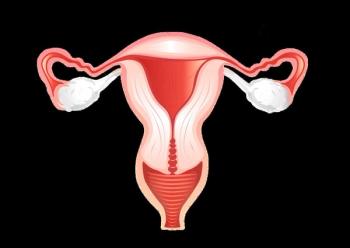
The final analysis of the PAOLA-1/ENGOT-ov25 trial confirmed the benefit of olaparib plus bevacizumab as maintenance therapy following frontline treatment in women with HRD-positive advanced ovarian cancer.


